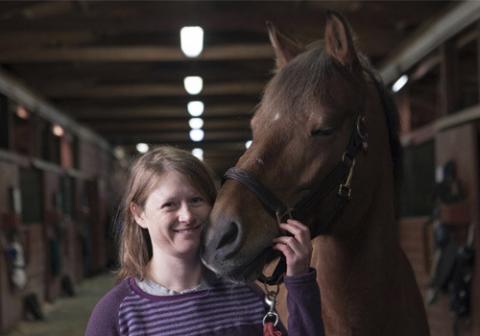Excellence in Teaching, 2014
Molecular, Cellular and Biomedical Sciences

Pathologic Basis of Disease is, for many students, one of the first courses that is similar to what they'll be taking in medical, veterinary, Physician's Assistant or other professional schools.
By using case examples throughout her course, Dr. Fleetwood allows students to make connections between the presenting symptoms, clinical lab work and the underlying pathologic mechanisms. She relies on a graduate-level textbook in this undergraduate course to better prepare her students for the rigors of the advanced professional school to which many of them aspire. Former students have attested to how well the course prepares them to "ace" their medical or veterinary school courses.
Students respond with enthusiasm to Michelle's non threatening attitude toward learning and her willingness to spend whatever time is needed to address their questions. They see first hand how passionate Michelle is about her profession as a veterinary pathologist and teacher.
She also brings her varied experiences at zoos and aquaria. For example, she shares that the thick skin of elephants prevents tuberculosis testing using the standard skin prick test. Instead, zoo vets inject saline up the elephant's trunk, then collect it for culturing when the elephant sneezes into a Ziploc bag!
Michelle spent some time in Alaska where she worked with sled dogs during one of the Iditarod races. Her Bernese Mountain Dog Ozzie serves as mascot to the PreVet Club, and can be seen around campus and downtown getting lots of attention from anyone passing by.
By: Jon M. Wraith, Dean, College of Life Sciences and Agriculture
About this Award
Each year, the University selects a small number of its outstanding faculty for special recognition of their achievements in teaching, scholarship, and service. Awards for Excellence in Teaching are given in each college and school, and University-wide awards recognize public service, research, teaching, and engagement.
